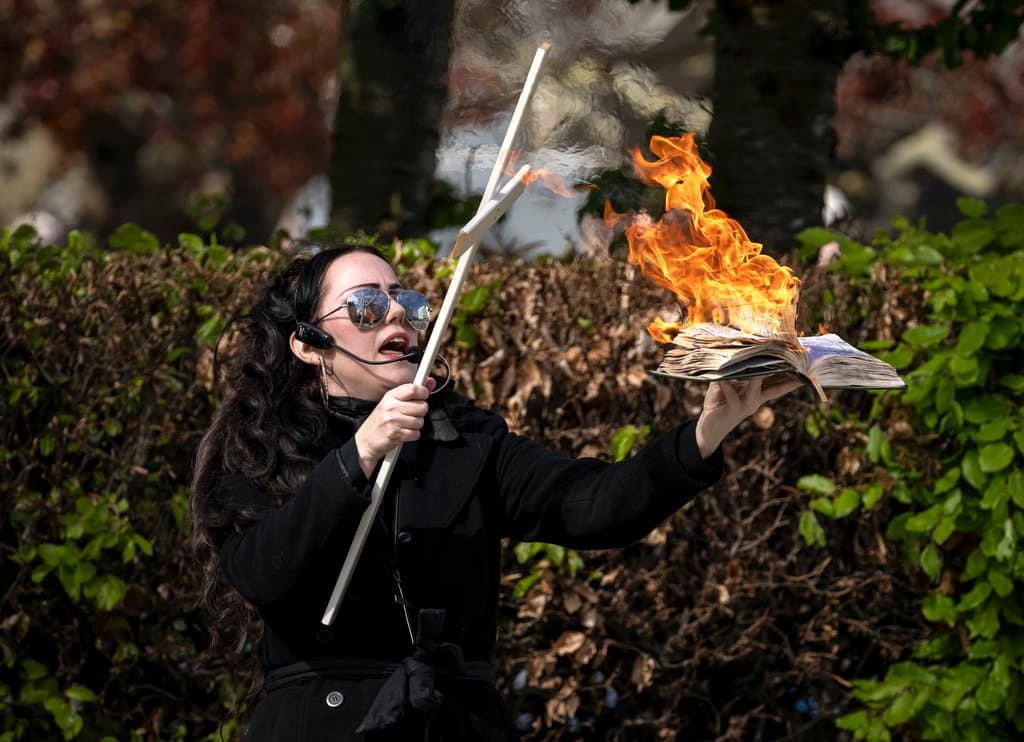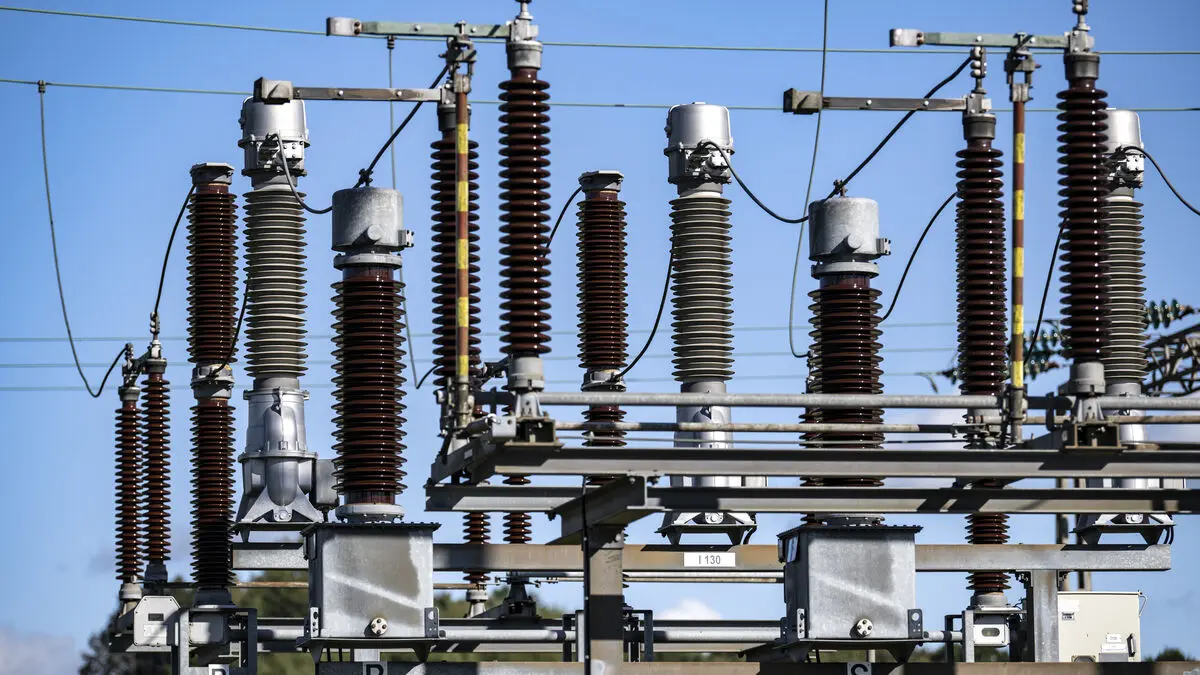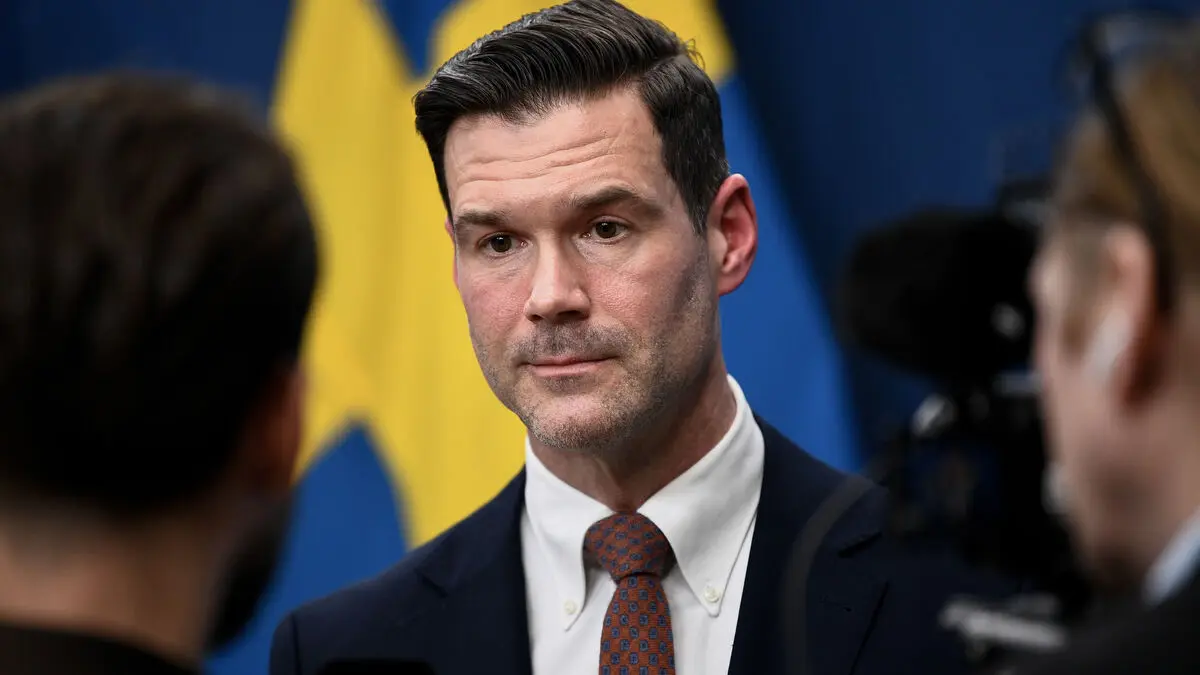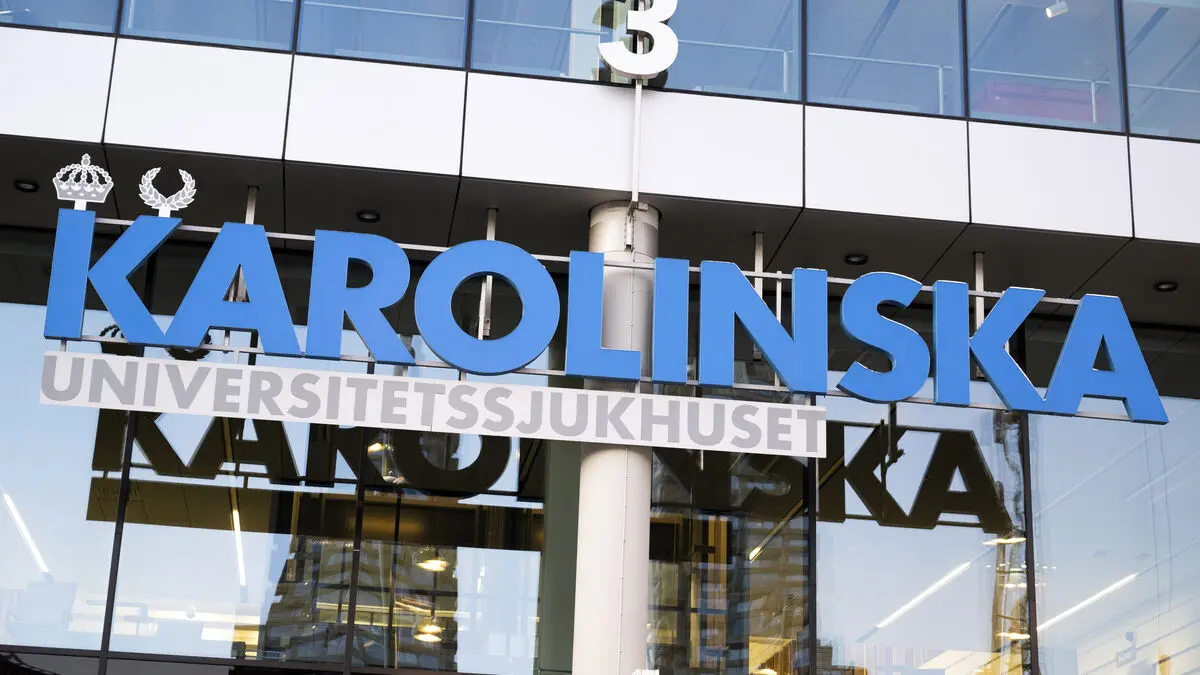The Public Order Act can be changed so that the police can stop Koran burnings with reference to Sweden's security.
The government will now assess whether to proceed with a legislative amendment.
Last year's Koran burnings led to violent protests in Muslim countries. The Swedish embassy in Baghdad was stormed. The terrorist threat was deemed to increase.
The government appointed an inquiry to review the police's possibilities to take into account Sweden's security when making decisions on permits for demonstrations.
Inquirer Mattias Larsson now assesses that the rules can be formulated so that the police can take into account Sweden's security, without conflicting with the Constitution or European law.
Refuse permits
He presents several alternative proposals. One implies that the police should be able to refuse demonstration permits if there is a "clear risk" that reactions may lead to Sweden's security being threatened.
Then you have to look back many times at what has happened when similar gatherings have been held, says Larsson.
The risk to the country's security can be threats of terrorist acts or crimes that seriously harm the state's or foreign service's ability to perform their duties. That Sweden's relations with other countries deteriorate is not enough.
It requires very serious events, says Larsson.
With such a legislative amendment, the police, according to the inquirer, would have had the prerequisites to refuse permits for Koran burnings last year after Sweden's embassy was attacked.
Hanging dolls
A less intrusive proposal is that the police, with reference to the country's security, should only have increased opportunities to set conditions for a demonstration. For example, for time or place or for how the demonstration is conducted.
This could lead to the police saying no to burning religious scripts, projecting images on an embassy, or hanging a doll representing another country's leader.
The idea is not that the police should make any kind of pre-censorship when deciding on permits.
Justice Minister Gunnar Strömmer (M) does not want to take a stand on the proposals now. They will first be sent out for consultation.
He states, however, that the government sees a need for the police to take into account the country's security and that they have chosen a path that does not involve banning the burning of religious scripts, for example, through a blasphemy law or religious peace law.
The choice has been not to make such legislative changes that aim to ensure that certain statements are never made, says Strömmer.
Another alternative is not to give the police the opportunity to take into account Sweden's security, and only strengthen the opportunities to set conditions on time and place. For example, further away from an embassy.
Peter Wallberg/TT
Facts: The inquirer's proposals
TT
Sweden's security is introduced as a new ground in the Public Order Act to refuse permits for demonstrations.
It must then be clear that there is a clear risk of criminality that threatens Sweden's security or Swedish interests abroad.
Alternatively, the police are only given the opportunity to set requirements on time and place for demonstrations with regard to the country's security.
The inquiry also proposes changes to the Public Order Act, regardless of whether the law is changed to take into account the country's security.
The police should, as an alternative to refusing permits, be able to decide on a different time or place than the one specified in the permit application
The reason for this should be the safety of the demonstration site, traffic, or to prevent epidemics.
Permits should be refused for foreigners who are to be deported due to posing a security threat.
The legislative changes are proposed to come into force on 1 July 2025.
Source: SOU 2024:52






